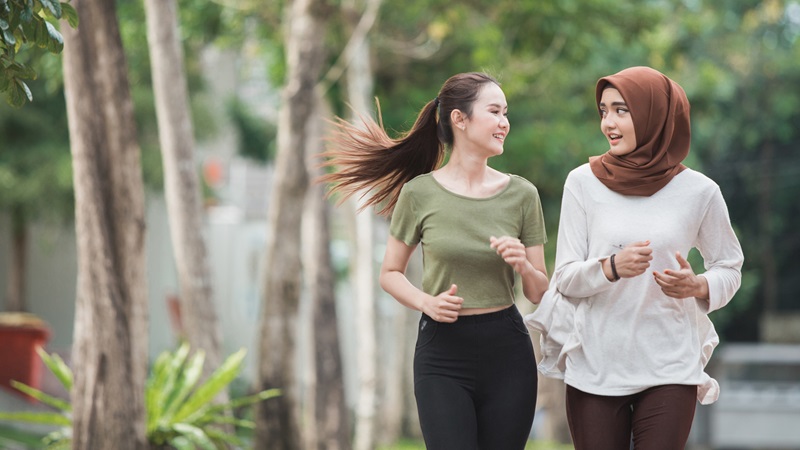Activewear manufacturing is all about better performance. But at what cost to the environment – and your sales?
Ropa deportiva may help our customers look better, run faster or train longer but there is no escaping the fact that the manufacturing process uses up valuable and finite resources.
According to an April 2020 McKinsey Consumer Sentiment Survey on Sustainability in Fashion, less than 10% percent of materials in the global apparel supply chain are currently from sustainable sources. Meanwhile, the industry still relies to a large extent on resource-intensive raw materials like plastic and cotton.
It gets worse. Synthetic fabrics and elastanes may help with wicking and stretch, but garments and footwear will shed microplastics when washed. These then head straight into our seas. Remember the outcry over microbeads in cosmetics? That’s a drop in the ocean compared with the damage we’re doing right now.

So we all have an ethical, environmental and moral reason to be more sustainable. But let’s look at the issue with our sales heads on. Being sustainable can, quite simply, help boost business.
According to global fashion search platform Lyst, sustainable sportswear is set to be one of the biggest trends. Searches for the term itself are up by 151%, with interest in specific materials, like econyl and organic cotton also on the rise.
So the need is there, and the demand. That’s why big brands are working towards fully sustainable activewear – and, as providers of thread and yarn, we’re working alongside them, developing alternative materials and investing in innovative sustainability solutions.
Reduce, reuse, result!
Major players Adidas have already halved the amount of water used in manufacturing, reduced energy consumption, and stopped using virgin plastic. They’ve also partnered with Parley for the Ocean to preserve our waters and keep the trash out.
Sneaker brand Cariuma IBI High don’t just make eco-friendly footwear – they also plant two trees in the Brazilian rainforest every time a pair of sneakers is sold. How’s that for sustainability?
Here at Coats, we’re doing our bit for sustainability by providing threads like biodegradable and compostable EcoRegen. This brand-new thread is made from 100% lyocell, a renewable fibre derived from wood pulp sourced from sustainably managed forests. Also in the pipeline is EcoCycle, a water-dissolvable thread that makes reusing and recycling end-of-life garments even easier.
Recycled plastic’s fantastic.
So that’s reduce and reuse. But what about recycling? Well, Girlfriend Collective Aesthetic, for example, makes luxurious activewear from plastic bottles and fishing nets – each pair of stylish leggings is made by recycling 25 plastic bottles. In a similar way, Kaira Active ship their fully sustainable activewear in 100% recycled packaging.
Meanwhile, Coats is leading the way when it comes to recycled threads and yarns. Our 100% recycled Coats EcoVerde range of threads is made up of old PET plastic bottles – which rescues them from the rubbish tip and cuts CO2 emissions too. By 2024, we are aiming to convert all of our premium polyester threads to be made from 100% recycled materials.
Going the extra mile with Decathlon
Right now, we’re working with Decathlon to help them achieve their goal of designing 100% of new products using an eco-design approach. At present, Decathlon have over 400 eco-designed products instore and online – but with hundreds more available, there’s still a long way to go.
We know there’s a lot more to be done – and we are on the case. Our Innovation Hubs are experimenting with making yarn from pineapple, soybean and hemp. We are also supporting the drive to sustainability and circularity through research and our partnership with The Ellen Macarthur Foundation. Because when it comes to activewear, we want to look good – and do good too.

